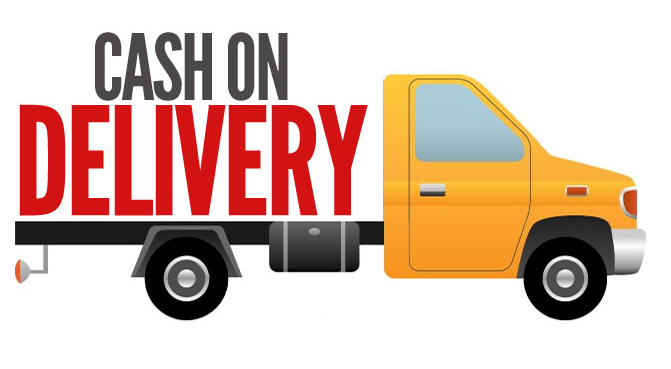Pay On Delivery: Between a rock and a place made of granite
A lot of people that I know have sworn to always pay on delivery anytime they buy stuff online. And quite a number of the retailers I have had conversations with affirm that Pay on Delivery (PoD) sits between 70% and 90% of their sales. There are underlying drivers for this behaviour. Let's attempt to list a few:
Culture
I remember having to go with my mother to Ipata market in Ilorin while I was growing up. And having to go with my wife to Oyingbo & Yaba markets after moving to Lagos. Both women liked to see, touch and test what they want to buy before they pay money to anybody. I used to find it funny how they'd chew the garri first to know whether it was real Ijebu garri before they allow the seller to measure out what they what. And with electronics, my cousins will make you play a tape to test the quality of the sound first before they even discuss money. This is built into our culture. Maybe even human nature. How will eCommerce enable this kind of customer experience? And no, reviews don't match it.
Trust
Very closely related to the first. Why should the buyer trust the seller? Trust the seller to bring size 43 shoes that I ordered in time for the wedding I want to attend. Trust the seller to return my money "properly" if I don't like the goods. I heard of an experience where someone ordered something, pays, then gets called later that the seller does not have it in stock again. On asking for his money back, he was told it's been put into a wallet for him against the next order. Unfortunately, this person had driven to a physical store and bought what he wanted already. He just wanted his money back. By insisting on pay on delivery, the power is put back in the hand of the buyer. If you like bring rubbish to my house at the wrong time, shebi I will kuku tell you I don't want again. You lose.
Online payment experiences are kinda wonky
In it's current incarnation, the online payment experience in Nigeria still has quite a long way to go if it would cross the chasm to the mainstream. Between risk management of the money holders (be it wallet or bank account), non-optimised user experiences and poor internet speeds (in the case of redirects), it takes only the dogged or converted to embrace paying upfront. It's even worse when you have experienced the unfortunate event of having your account debited while the website or app says something like "error one tin one tin", then you have to go through uncomfortable customer service loops to get your money back.

[image: Yallahoman.com]
With all these, folks just choose to Pay on Delivery. You can't get burnt that way.
For a retailer though, this is a huge cost. A cost that directly impacts her operation's bottom line.
- You have to call to confirm the order (multiple times),
- You have to call to verify the person is where he said he'd be,
- You have to collect cash (if he pays) and carry the cost of cash handling,
- You have to take the risk of returned items (which happens to be high);
- etc.
Unfortunately, this has become a staple. Nigerians expect your eCommerce operation to support PoD or they ain't buying your stuff! Any retailer who doesn't have this on offer will likely struggle with getting consumer interest. Maybe just remain a niche player.
On the brighter side, the availability of PoD has helped to produce a bit more of consumer confidence in online shopping. About 5 years ago, our team conducted a survey of some of our customers asking why they don't use their cards online. The number one reason was "I don't trust that thing and all these online people". A much stronger reason for them than poor payment UX or restrictions. Some even felt the restrictions (OTP anyone?) helped boost their confidence a little.
We should thank PoD. And fear it too. It's costing online retailers.
What do I think will happen?
For the bigger online retailers, who have cash to absorb their burn rates, they will keep supporting PoD along with it's huge impact on their profitability for long enough to build a large + loyal customer base. Once they are comfortable they have hit this sweet spot, they'd either just switch it off overnight or gently nudge their loyal customers to prepaid options which they'd incentivise (is that a word?) with all sorts of things like discounts, money back guarantees, etc., to sweeten the deal. Think of it like removing oil subsidy. It could be political suicide, but it's what you must do, so you find nice ways to ease into it. Starting with leaking news and "insights" as to why it's killing the industry.
For the smaller retailers who have had to just do this, some will fold up and move on to other things, or they'd just remove PoD and settle for a small corner of the market serving their own small set of loyal customers they have built. No scale.
The bottom line though, is that in the short-mid term, PoD is here to stay and it has helped ecommerce get a toehold.
Are there other ways to address the 3 main issues above without resorting to PoD? Let me think about that a bit.